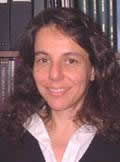Susan M. Rosenberg, Ph.D.
Molecular & Human Genetics

Nurture remodels nature: environmentally-inducible genetic change
Dr. Rosenberg received the award for her research on mutations and genome rearrangement
that alter chromosome structure. These changes to a cell’s genome are the underlying
causes of many medically important problems. Examples in which the human genome
is changed include cancer formation, tumor progression, and evolution of cancer
resistance to chemotherapeutic drugs. Mutations and genome rearrangements also fuel
the evolution of pathogenic microbes allowing them to escape the immune system,
and to develop resistance to antibiotics. For many decades, remodeling of the genome
(“nature”) was presumed to occur randomly and independently of environmental conditions
(“nurture”). Dr. Rosenberg’s group studies a process that contradicts this view:
mutation and genome rearrangement provoked by environmental stress to cells. They
have discovered that under stress conditions, a special mistake-prone DNA copying
enzyme is produced by cells, and the errors it makes lead to high levels of mutation.
Some of the mutations allow the cells to thrive in the previously stressful environment.
The cells studied are those of a model organism, the bacterium E. coli. However
the error-prone enzyme is a member of a newly discovered superfamily of DNA copying
enzymes present in all branches of the tree of life. The action of the four similar
enzymes in humans, and similar enzymes in human pathogens, is likely to be important
in human cancers, and to microbial pathogenesis. Dr. Rosenberg’s group, in collaboration
with Dr. Philip Hastings at Baylor College of Medicine, has also discovered a second
kind of environmentally provoked genome remodeling: adaptive gene amplification.
Potentially highly relevant to cancer evolution, this is a stress-provoked expansion
in the numbers of copies of a gene in cells, the outcome of which is cell growth
in the stressful environment.
Dr. Rosenberg’s nomination was based on the following publications:
Hastings PJ, Bull HJ, Klump JR, Rosenberg SM."
Adaptive amplification: an inducible chromosomal instability mechanism.
". Cell. 2000 Nov 22;103(5):723-31.
McKenzie GJ, Lee PL, Lombardo MJ, Hastings PJ, Rosenberg SM. "
SOS mutator DNA polymerase IV functions in adaptive mutation and not adaptive amplification.
". Mol Cell. 2001 Mar;7(3):571-9.